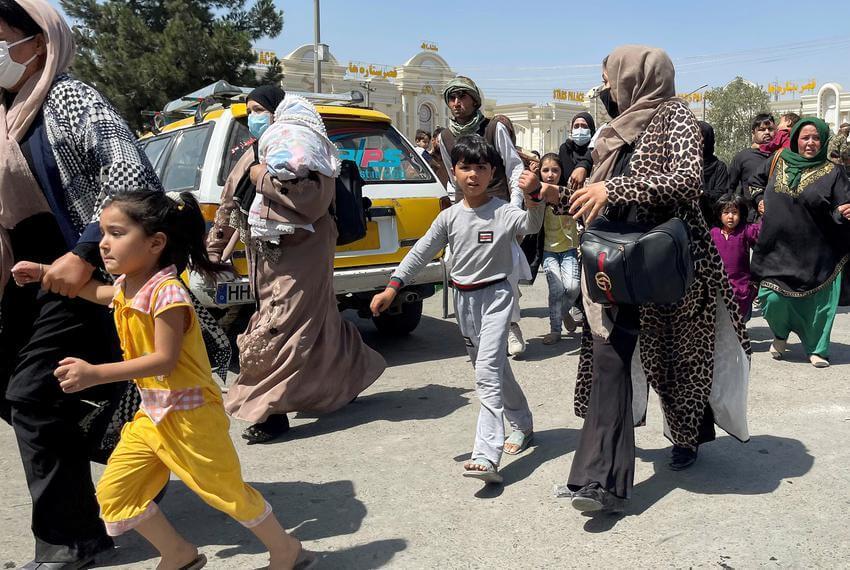JEREMIAH CHAPTER 29: Utilizing the current situation to your best.
This chapter has a war just as the preceding chapter of true prophecy against false one. The preceding chapter presented prophet Jeremiah against a false prophet, Hananiah, in a sermon to sermon conflict of which prophet Jeremiah emerged as the right prophet and Hananiah as the false one who received a punishment directly from God and died within only 2 months (Jer 28:12-17). In this chapter, the struggle is between letters, one containing false words and the other bearing God’s truth. The chapter has a number of letters: A letter from Jeremiah to the exiles (vv. 1–14); a letter concerning Jewish false prophets in Babylon to which Jeremiah replied (vv. 15–23); a letter from Shemaiah to the temple priests concerning Jeremiah, which he read (vv. 24–29); and a letter from Jeremiah to the exiles concerning Shemaiah (vv. 30–32).
The letter to the residues of those in captivity (residues because some had died due to natural causes and others due to violence) had words of encouragement and warnings. Jeremiah sent the letters by the hands of ambassadors that King Zedekiah was sending to Babylon, either to pay attribute or on any other mission. The bible doesn’t indicate if King Zedekiah allowed Jeremiah to send his letters by his men’s hands though some writers say that this was easy since Zedekiah had trust in Jeremiah whose prophecy against Hananiah had come true. Also, that the letters had the message to do with the Jews staying in Babylon together with their King Jeconiah might have made Zedekiah happy to deliver this message since he didn’t want the return of King Jeconiah (Jamieson, Fausset and Brown). Other writers say this that this was possible simply because Jeremiah had friends in top high officials (The Wiersbe Bible Commentary).
The ambassadors were Elasah (son of Shaphan) and Gemariah (son of Hilkiah). According to 2 Kings 22:8, it is Hilkiah who found the sacred book, showed it to Shaphan who later delivered it to King Josiah. The discovery of this book is the one that induced the religious reformations in the times of King Josiah. From this fact, then it is possible that the sons of these two religious men (ie Elasah and Gemariah) were very practical and practitioner of God’s mission making it easy and appropriate to work with Jeremiah so as to deliver the letters even without involvement or authorization of King Zedekiah (my deduction).
The message was that the people in exile were to be patient, work towards the good of the nation and government they were under, and maintain life and increase in number which would be necessary during the restoration of their independence (1-7). The people were to plant and enjoy the harvests, marry and enjoy love and children, live at peace with the Babylonians despite their difference in faith, and pray for the government and cities in which they were themselves living. Some commentators explain these verses to depict the gospel message of praying for our enemies (Matt 5:44) (Jamieson, Fausset, and Brown), others say it well that it was for their good (The Wiersbe Bible Commentary, and M. Henry bible commentary).
For those who follow my writings, you are aware of the Action- Reward philosophy. According to this philosophy, the Jews in exile were able to live in peace and pray for the prosperity and peace of Babylon simply because it was their residence by that time. Its peace meant their peace and its wars would automatically bring them harm and destruction too. Also, according to the principle of gentleness and retreating we discovered in preceding chapters, it would be better for them to stay calm and obedient to Babylon leadership as they prepared themselves for a greater revolution (my deduction).
The chapter continues as the prophet talks and warns against the false hope of having Babylon down within a short time as so many were prophesying. It is unfortunate to learn that most of the priests and prophets that the letter was written for as in verse 1 were false one since the only true prophet who is known to have been part of the taken captives is prophet Ezekiel. Thus the people in exile were at a risk of deception by so many false prophets which was already happening. Prophet Jeremiah makes it clear that they were to spend 70 years in captivity while the Lord prepares them for the best of dinning with Him forever. God reminds them that despite them being in foreign nation under captivity, He still had a good plan for them, to make for them a prosperous future but not a doomed one-verse 11 (8-14).
Verses 15-19 point back to the nature of Jerusalem and its then King Zedekiah: How unworthy they were and thus would meet a destructive end. This reminder comes in the middle of false prophecy that Babylon was about to fall and Jerusalem regain its independence. The prophet continues highlighting the two examples of the false prophets in Babylon (Ahab and Zedekiah) who were preaching lies in God’s name. He foretold how their prophecy would deliver them into the hands of King Nebuchadnezzar who would kill them and their death, instead of, being a blessing to others as it was with true prophets; it would be a curse in the sense that people will make it a taboo in their cultural sense of punishments (20-23).
Some commentators explain that all the prophets who would be caught bringing revolts and startling people by their messages were punished to death by burning into (read Daniel 3:6). However, such death of true prophets would be a blessing and leave a heroic message with people and this was going to be different with the above false prophets. Their false prophecy would probably cause people to enter into a revolt believing that it was the right time to get free and these ring leaders would be caught and brought to death (John Gill’s commentary).
The following verses give an example of a big false prophet who condemned Jeremiah. This warning was in response to Shemaiah, another false prophet in Babylon, who had written letters to people in Jerusalem “in the name of the Lord,” urging them to imprison Jeremiah because he was a madman. The chief temple officer Zephaniah let Jeremiah read the letter (see 21:1). Because Shemaiah had a following in Babylon, Jeremiah warned the exiles that the man was a rebel against God and that the Lord had neither sent him nor given him a message. Shemaiah would be judged for his sins by dying childless in Babylon, never to see his native land again (The Wiersbe Bible Commentary).
According to John Gill’s exposition, this latter part of the chapter has a different date from the beginning. This is because it carries reactions/accusations of prophet Shemaiah following Jeremiah’s delivered letter to the exiles. This message must have come with the Zedekiah’s messengers when they returned from Babylon. The letter accused Jeremiah in front of everyone in Jerusalem. After hearing from it, the prophet writes a reply back, not to Shemaiah, but to all the people in exile warning them of this false prophet’s lies and foretelling his punishment from God.
Our today’s focus is verses 4-7, “Thus saith the LORD of hosts, the God of Israel, unto all that are carried away captives, whom I have caused to be carried away from Jerusalem unto Babylon; Build ye houses, and dwell [in them;] and plant gardens, and eat the fruit of them; Take ye wives, and beget sons and daughters; and take wives for your sons, and give your daughters to husbands, that they may bear sons and daughters; that ye may be increased there, and not diminished. And seek the peace of the city whither I have caused you to be carried away captives, and pray unto the LORD for it: for in the peace thereof shall ye have peace”.
The message is clear: Someone wrote, “There is no such a thing as bad weather, what matters are the kinds of dressing”. Whatever situation we are in, there are perfect things to be done in it as we prepare for other moments. I was listening to Pastor Joel last evening in the lesson, nothing is wastage, and was amazed by his statements. Osteen stressed that the situations that are rough and stinking are just fertilizers or manures for our growth. Actually, the challenges we are facing now are exactly part of the entire plan to make us into what we were meant for. The Jews were to enjoy the times even though they were still captives as they produce and increase in number and experience that would be needed during restoration.
The same message applies to us all. Try to relax and wait upon God’s deliverance in the right time. Meanwhile, don’t just sit but do some other thing while waiting for the big thing to happen. Thank you.
The Complete You Project.



